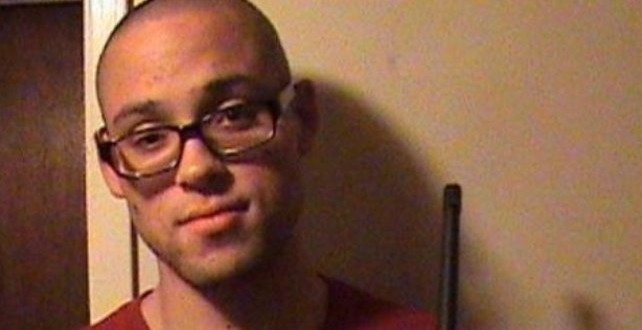Portland Oregon shooter killed himself as police approached.
Two days after the rampage at Umpqua Community College in Roseburg, Douglas County Sheriff John Hanlin said at a press conference that the Oregon medical examiner determined the gunman had killed himself.
There have been calls for new measures to tighten gun controls in the United States following the latest mass shooting.
The gunman, who shot dead an English professor and eight others, was identified as 26-year-old Christopher Harper-Mercer, a student in the class who previously had been turned away from a private firearms training academy.
A day after the rampage at Umpqua Community College in Roseburg authorities sought a motive for the bloodiest US mass shooting among the dozens reported over the past two years.
As further details of the Roseburg shooting emerged, a former girlfriend of one of the wounded survivors, a US military veteran, revealed that his heroism in confronting the shooter may have saved others from being killed.
The gunman carried six guns, body armour and five magazines of bullets with him to campus.
A statement from Harper-Mercer’s family said they are shocked and deeply saddened by the incident.
The brief statement, released by police on their behalf, says: “We are shocked and deeply saddened by the horrific events that unfolded on Thursday, October 1. Our thoughts, our hearts and our prayers go out to all of the families of those who died and were injured.”
Seven more firearms were found with a stockpile of ammunition at the apartment he shared with his mother just outside Roseburg, a former timber town about 290km south of Portland.
Celinez Nunez, assistant special agent of the US Bureau of Alcohol, Tobacco, Firearms and Explosives, said all the weapons had been purchased legally.
The gunman stormed into his college classroom, shot the professor in the head and then ordered students to stand up and state their religion.
He then asked if they were Christian, before shooting them one by one, survivors said.
The intervention of another student, Chris Mintz, 30, a US Army combat veteran who served in Iraq, may have played a key role in preventing a higher casualty toll.
As the gunman moved toward an adjoining classroom, Mr Mintz tried to stop him, according to Jamie Skinner, Mr Mintz’s former girlfriend and the mother of their six-year-old son.
The gunman opened fire, striking Mr Mintz who pleaded with the shooter, telling him it was his son’s birthday.
But the gunman fired additional rounds, Ms Skinner recounted, adding that the gunman then changed direction and entered a different room.
“The assailant was not able to make it into the classroom, because Chris stopped him,” she said, adding that Mr Mintz was hospitalised with two broken legs and seven bullet wounds.
The Oregon shooting, the latest in a series of high-profile mass killings across the country, has led to fresh demands for stricter gun control in the United States.
The calls include an impassioned plea by Democratic President Barack Obama for political action, and statements by some Republican presidential candidates supporting the right of Americans to bear arms.
Among those to have championed the gun rights cause in the past was Douglas County Sheriff John Hanlin, who has refused since the shooting to comment on the debate and has repeatedly declined to name the Roseburg gunman during news conferences.
“Media and community members who publicise his name will only glorify his horrific actions,” Mr Hanlin said.
“And eventually, this will only serve to inspire future shooters.”
Agencies/Canadajournal
 Canada Journal – News of the World Articles and videos to bring you the biggest Canadian news stories from across the country every day
Canada Journal – News of the World Articles and videos to bring you the biggest Canadian news stories from across the country every day



